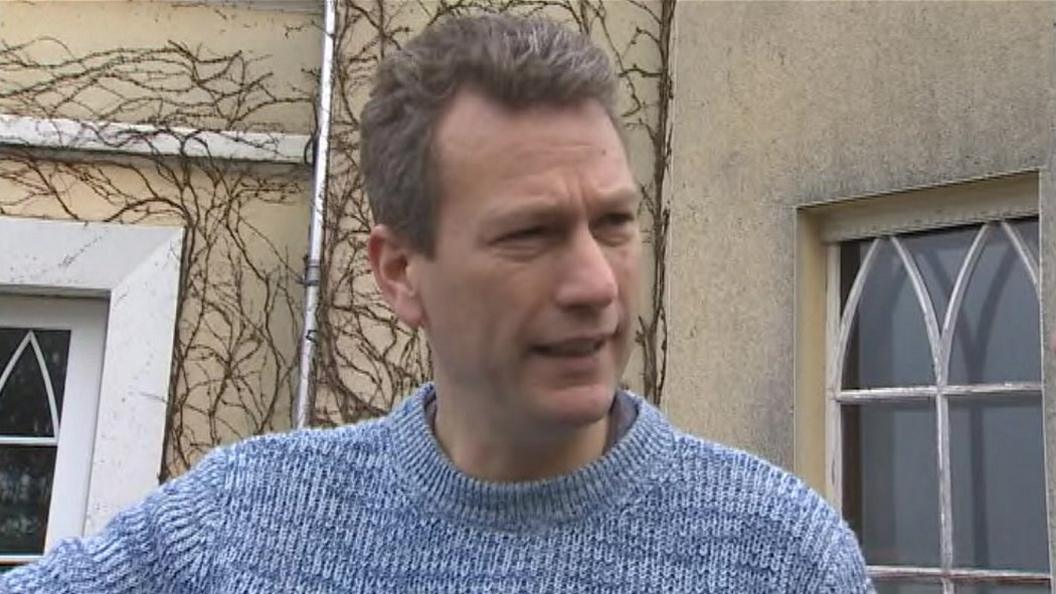Welsh Tory aims to 'energise' assembly election voters
- Published
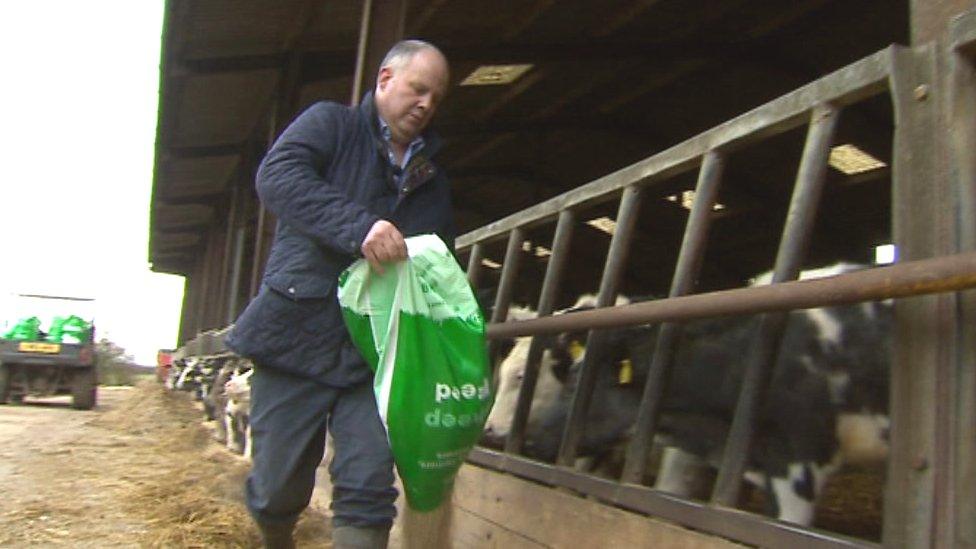
Against the grain? Andrew RT Davies is a farmer backing Brexit
On his farm in the Vale of Glamorgan - one of five owned by his family - Andrew RT Davies says a neighbour paid him a visit recently.
He was "ranting about Europe".
"Do you know the Vale of Glamorgan is the most Eurosceptic place in Wales?" asks the Welsh Tory leader.
If so, Mr Davies should feel at home. He's announced he'll vote to leave the EU.
He's always been a Eurosceptic, he says, so he didn't need to agonise over whether to make that announcement.
"Anyone who knows me knows I agonise over very little. That's why I look so young."
But before going on an anti-EU charm offensive, he has another objective: becoming first minister.
Campaigning for the EU referendum on June 23 is on hold until after the assembly election on May 5 - an election he hopes will usher in a Welsh Tory government.
That'll be difficult. It's likely some form of coalition would be needed to put the Tories in charge.
And while Mr Davies says he doesn't rule anything in or out, Plaid Cymru's Leanne Wood, leader of the assembly's third biggest party, has no appetite to work with him.
'Real change'
Nevertheless, Mr Davies is convinced there are enough Tory supporters out there.
Just look at last year's general election, he says. More people voted Conservative then than voted for Carwyn Jones's Labour Party at the last assembly election in 2011.
That may be true, but turnout at assembly elections has been much lower than in general elections.
"So what we've got to do is energise people to say the assembly is important," Mr Davies says.
"The assembly election is vital to our future wellbeing - and we need change. After 17 years here of Labour running services into the ground we need to secure real change in Wales."
Being a member of the national assembly is a privilege, he tells me.
"Blue when I was born and blue now" - a 2016 profile of Andrew RT Davies
The other three party leaders in the institution were campaigning for its creation 20 years ago. What was Mr Davies attitude towards devolution back then?
"I suppose quiet indifference would have been the word I would have used. Ultimately, I was securing my family's future - my business's future - by getting my head down and working here on the family farm.
"Really, politics was most probably not that important to me at that time."
He adds: "I didn't even vote at the national assembly referendum in 1997."
Since then he's had a "calling" to get into politics, sparked by the BSE crisis which convinced him, he says, that rural communities needed a stronger voice.
Nowadays he advocates more power for the assembly, including powers over taxation that would allow a future Conservative administration to cut income taxes in Wales.
But it's the NHS that will be the big battleground in this election.
Conservatives feel it helped them capture Labour seats in Westminster, including the Gower constituency - now represented by a non-Labour MP for the first time in more than 100 years, Mr Davies reminds me.
"We're not falling back from communities," he says. "It's the Labour Party who are falling back from communities."
His attitude towards devolution may have changed over the years. But his Conservatism hasn't.
As if to prove the point, he tells me about how he couldn't breathe when he was born on the farm - the farm where he still lives, and where he and wife Julia raised their four children.
"So I was blue when I was born and I'm blue now ... and I'll be blue when I die. There's an after-dinner joke there somewhere isn't there."
Now he wants to turn the Welsh government blue.
- Published22 February 2016
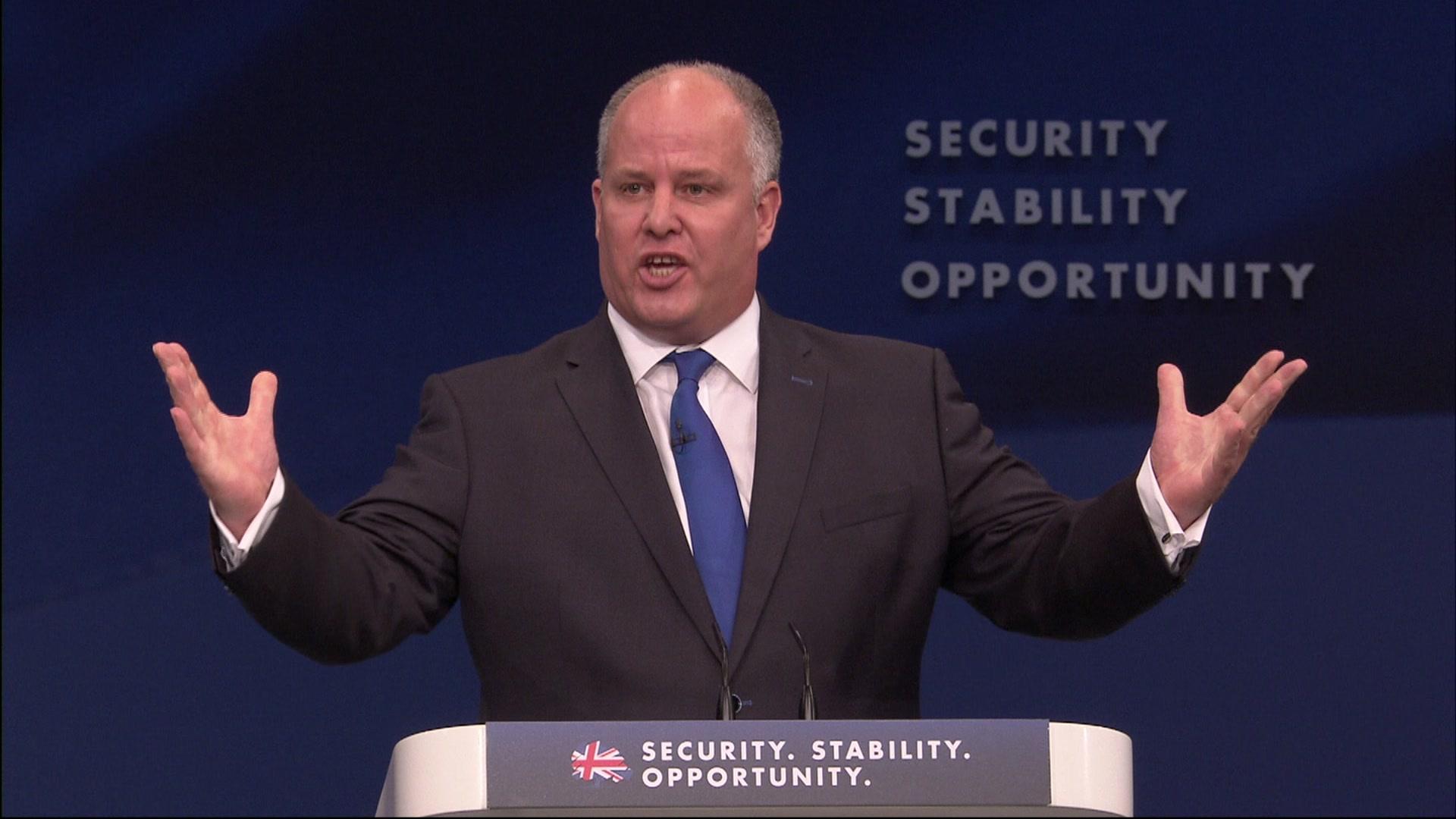
- Published3 March 2016
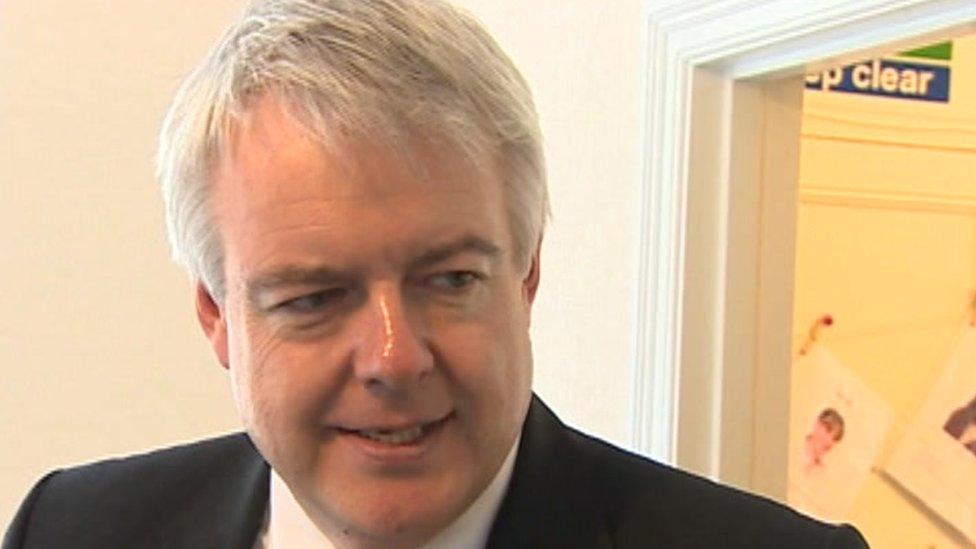
- Published25 February 2016
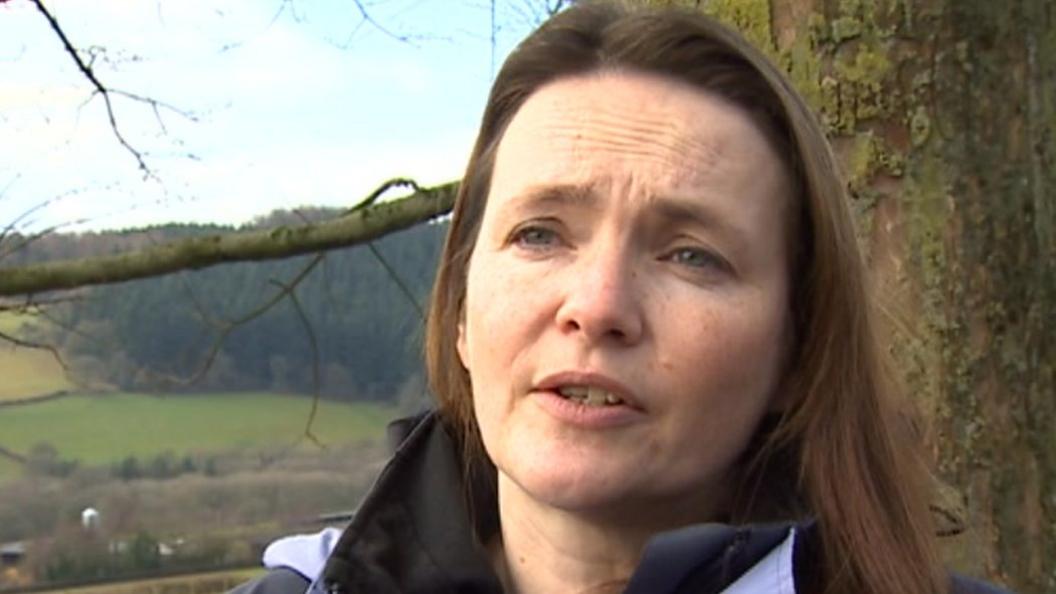
- Published16 February 2016
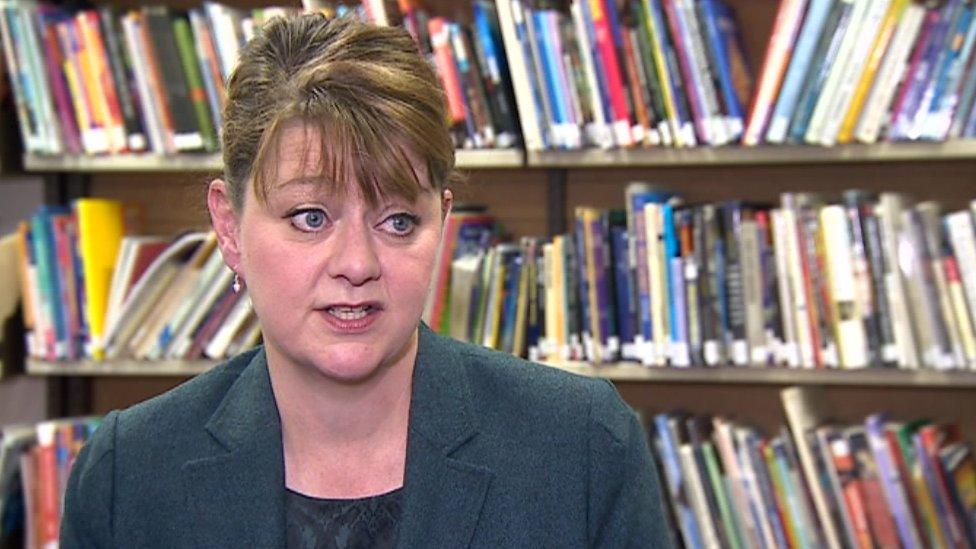
- Published10 February 2016
